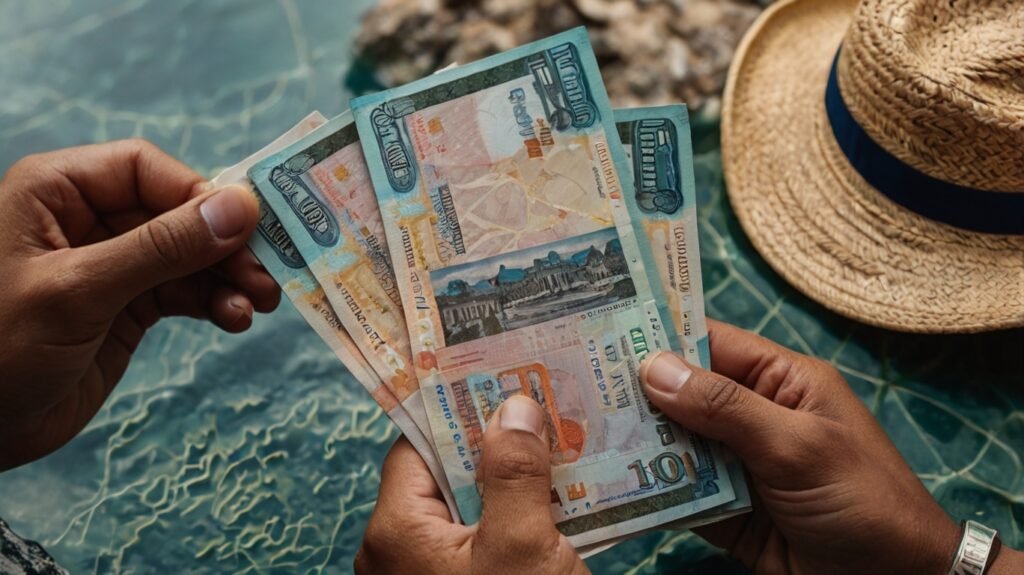Everyone loves a vacation, right? It’s your time to unwind, explore new places, and take a break from the daily grind. But let’s be real—vacations can sometimes be pricey, and it’s all too easy to return home with a pile of debt. So how can you enjoy that much-needed getaway without the financial hangover? Let’s dive into how you can budget for a vacation without going into debt.
Assessing Your Financial Situation
Before you start daydreaming about sandy beaches or mountain hikes, take a step back and look at your finances. You don’t want to head into a vacation unprepared.
Review Your Current Financial Standing
It might not be the most exciting step, but trust me, it’s crucial. Start by reviewing your income, savings, and current expenses. Can you afford to set aside extra money for a trip? Knowing where you stand financially helps you avoid biting off more than you can chew.
Set a Clear Spending Limit
Once you have a handle on your finances, set a clear spending limit for your vacation. Be realistic! If you know you can only afford $2,000 for the entire trip, then stick to it. The goal is to enjoy your vacation without returning to a mountain of debt.
Research Your Vacation Destination
Knowing where you’re headed is half the battle. The more research you do, the better prepared you’ll be to budget effectively.
Understand Average Costs
Research how much things cost at your destination—everything from flights to food. Check out accommodation prices, transportation options, and even tourist attractions. By getting a sense of the average prices, you can start to see what fits your budget.
Look for Budget-Friendly Alternatives
If your dream destination is looking a bit out of reach, don’t fret. There are always budget-friendly alternatives. Consider traveling during the off-season, exploring less touristy spots, or even shortening the length of your trip. These small adjustments can save you a lot of money without sacrificing the fun.

Create a Vacation-Specific Savings Plan
Now that you know your spending limit and have done your research, it’s time to save for the trip.
Open a Separate Vacation Savings Account
A great way to stay disciplined is by opening a separate savings account just for your vacation. Having this dedicated space for your trip money helps keep you from dipping into it for other expenses.
Set Monthly Saving Goals
Based on your vacation timeline, set achievable monthly saving goals. Let’s say you’re planning a trip a year from now and you’ve budgeted $3,000. By saving $250 each month, you’ll reach your goal without breaking a sweat.
Prioritize Essential Vacation Expenses
Vacations come with many costs, but some are more important than others. Prioritize the essentials to keep your spending on track.
Accommodation
Look for deals on hotels, Airbnb, or even hostels. Depending on the location, sometimes short-term rentals offer better value for families or groups than traditional hotels.
Transportation
Whether it’s flights, trains, or renting a car, plan your transportation carefully. Try to book early to snag the best deals or consider traveling mid-week when flights are typically cheaper.
Food and Dining
Eating out every meal can add up fast! You don’t need to skip restaurants entirely, but balance it out by buying groceries or eating at local markets. It’s cheaper and gives you a more authentic experience.
Find Ways to Cut Costs Before the Trip
Cutting costs doesn’t mean cutting fun. There are plenty of ways to trim your vacation expenses before you even leave home.
Book Early for Discounts
Booking flights, accommodations, and activities early can help you lock in lower prices. Keep an eye out for sales or use price tracking tools to get the best deals.
Use Travel Reward Programs
Do you have airline miles or credit card points? Now’s the time to use them. These reward programs can significantly cut down the cost of your flights, hotels, or even activities.
Smart Spending During Your Vacation
You’ve saved, researched, and planned, but the real test comes when you’re on vacation. How do you stick to your budget while you’re enjoying yourself?
Stick to a Daily Budget
One simple way to avoid overspending is to create a daily budget for your vacation. If you know you’ve allotted $100 a day, you’ll think twice about splurging on expensive meals or souvenirs.
Use Cash, Not Credit
When you can, use cash instead of credit cards. It’s easy to lose track of how much you’re spending when you’re swiping a card, but with cash, you can physically see how much you have left.

Avoiding Vacation Debt Traps
Vacations are meant to be fun, but it’s easy to fall into some common debt traps.
Avoid Unnecessary Splurging
It’s tempting to go all out when you’re on vacation, but avoid splurging on things you didn’t budget for, like luxury upgrades or expensive souvenirs. These impulse buys can wreck your budget.
Say No to Impulse Purchases
Speaking of impulse buys—just say no. That extra excursion or last-minute shopping spree can wait until your next trip. Remember, the goal is to come home debt-free.
Enjoying Activities on a Budget
You don’t need to spend a fortune to have fun on vacation. Many destinations offer plenty of budget-friendly activities.
Free or Low-Cost Experiences
Look for free or low-cost activities like hiking, visiting museums on free days, or exploring local parks. These experiences are often just as rewarding as expensive tours or excursions.
Utilize Local Deals
Many tourist destinations have local deals or discounts for visitors. Check out Groupon or local tourism websites to find offers on activities, dining, or tours.
Post-Vacation Financial Review
After the vacation, it’s important to sit down and review your spending. How did you do?
Assess What You Spent
Did you stick to your budget? Did any unexpected expenses come up? Reviewing your spending helps you plan even better for your next vacation.
Lessons for Future Vacations
If you went over budget, figure out why. Maybe you underestimated certain costs or got caught up in the excitement of the trip. These lessons will help you avoid the same pitfalls next time.
Conclusion
Budgeting for a vacation doesn’t mean cutting out all the fun. With a bit of planning, discipline, and smart spending, you can enjoy your dream trip without the stress of debt. Remember, the best vacations are the ones where you come back refreshed—not financially overwhelmed!
FAQs
- How much should I save for a vacation? It depends on your destination, duration, and lifestyle. Set a realistic budget based on your financial situation and start saving early.
- What’s the best way to avoid overspending on vacation? Create a daily budget, stick to it, and use cash when possible to avoid overspending.
- Are there apps to help me budget for a trip? Yes, apps like Mint or You Need a Budget (YNAB) can help you keep track of your vacation spending.
- When’s the best time to book flights for cheaper rates? It’s often cheaper to book flights mid-week and a few months in advance for the best deals.
- How can I find budget-friendly activities at my destination? Research free events, local deals, and check out reviews from travelers who highlight budget-friendly activities.
